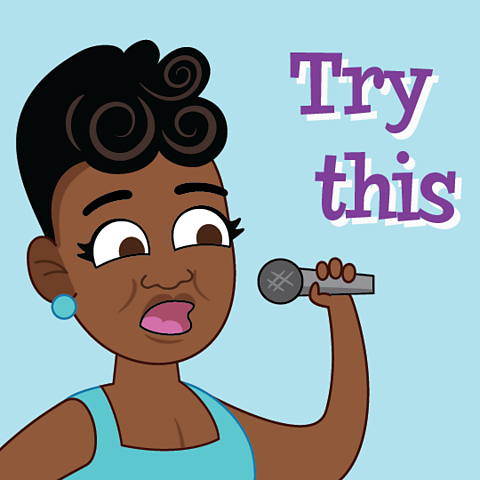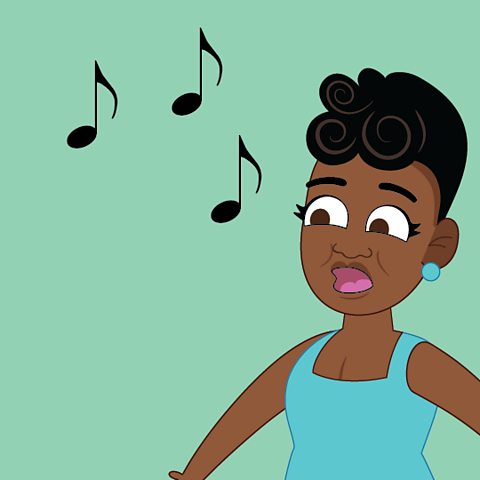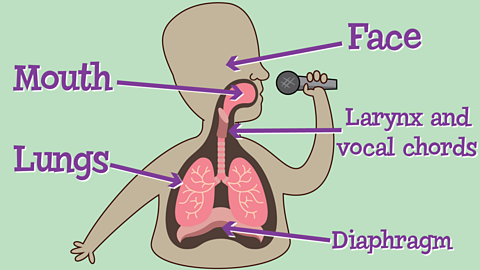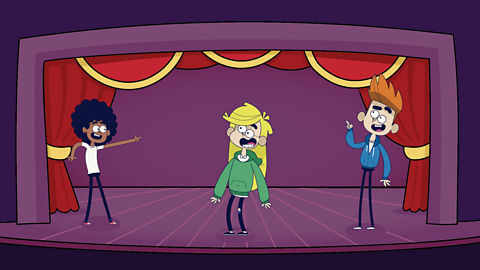Singing to improve

Singing is a skill that we can improve with practise. The more we sing, the better we become.
There are many components required to help us sing. They all help us to improve our singing technique. Let's look at:
- posture
- the mouth
- tuning

What is a good posture?
Posture is how we stand or sit. When you're singing it's important to not squash your diaphragmLocated beneath the lungs, the diaphragm is the the main muscle in the body used for breathing. downwards, as it impacts how well we can breathe.

When singing sitting down, our feet should be flat on the floor - if your legs don't quite reach, then try sitting further forward on the chair.
Sit forward so your back is straight and not leaning on the back of the chair.

When singing standing up, focus on putting your shoulders back and down, with your feet hip width apart.
If your feet are together, your balance isn't as good. It's important to have a firm foundation for your body when you sing.


To help relax your body when singing standing up, slightly bend your knees.
Then wobble them very slowly backwards and forwards. So slow that no-one from a distance can see.
So remember:
stand up tall
wobbly knees
shoulders back and down
How does our mouth help us to sing?

When singing, our mouth makes a big difference to how loud we are. It's our built-in amplifierSometimes called an amp, an electronic device that makes the sound from an instrument louder and stronger..
The more space we create for the sound, the louder we can become.
Think about when someone screams at something scary - they open their mouth nice and wide!
What is tuning?

When singing, we want the notes to sound as written. So singers have to learn to listen carefully, to sing in tune.
Singing in tune is really important when performing with other musicians.
Once singers learn a song, it's easier for them to remember what each note sounds like. However, without enough breath, a note can wobble and go slightly higher or lower than it should.
Unlike other instruments, singers can't tighten strings, or press a different note for the right sound to come out.


If you sing a long note, what happens as you start to run out of breath?
How does the sound of the note change?
Activities
Singing challenge

For this challenge you are going to sing part of your favourite song.
First time you sing, try to keep your mouth as small as possible.
This time try opening your mouth nice and wide when you sing. It should be wide enough that you can stick your tongue out without touching the sides of your mouth.
What happens to the sound you make as you sing?
Try different mouth shapes and listen carefully. What sounds best?

Quiz
Bitesize Primary games. gameBitesize Primary games
Play fun and educational primary games in science, maths, English, history, geography, art, computing and modern languages.

More on Singing
Find out more by working through a topic
- count6 of 6

- count1 of 6

- count2 of 6

- count3 of 6
